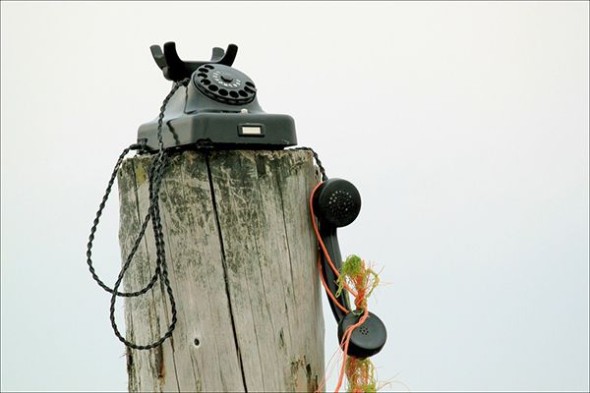HBs 2184 and 2173 Alive and Well
Posted on April 4, 2019 by Samuel Pastrick
Tags, Telecommunications

Editor’s Note: Theses bills are still making their way through the Legislature and we need your help. As of April 29, HB 2184 is awaiting a work session in the House Committee on Revenue and will then meet up with HB 2173 in the Joint Legislative Committee on Ways & Means. After passage through Ways & Means, both the House and Senate will vote on each bill. Stay tuned for updates in the coming weeks.
CUB began the 2019 Oregon legislative session prioritizing several bills – among them, HB 2184 and HB 2173. Both are very much alive, and CUB needs help from members and supporters with our ongoing advocacy. You can help by signing onto our letter of support.
HB 2184 would modernize the Oregon Universal Service Fund (OUSF) and establish a broadband grants program targeting schools, libraries, and un- or under-connected residential areas throughout Oregon. After moving out of the House Committee on Economic Development in March (with only Democratic support), HB 2184 was sent to the House Committee on Revenue. That committee held a public hearing on April 2 and will likely hold a work session in either the second or third week of April. The bill would then move to the Joint Committee on Ways & Means.
HB 2173 would codify through statute the Oregon Broadband Office (Governor Brown previously created the office within Business Oregon via Executive Order.) This bill moved out of the House Committee on Economic Development early in the session with significant bipartisan support, and now awaits further consideration in the Joint Committee on Ways & Means.
The Oregon Legislature created the OUSF in 1999 to maintain and deploy statewide network infrastructure in support of widespread, high-quality, and low-cost voice service. In 1999, this largely meant landline telephone. In 2019, we’re still talking about landline telephone, but also wireless voice and Voice over Internet Protocol (VoIP) service, which is the equivalent of landline, but delivered over the Internet.
Oregon Legislature initially exempted wireless companies and their customers from contributing to the fund (VoIP wasn’t yet viable). Twenty years later, this exemption is still in place. This means that only landline telephone and certain VoIP customers contribute to the OUSF through an 8.5 percent surcharge on intrastate calls. The rub, again, is that the OUSF pays for the maintenance of a statewide network that supports all advanced communication services – including landline, wireless, VoIP, and Internet access.
This is unfair, particularly to landline customers, and represents a significant handout to out-of-state corporations like AT&T, Verizon, and Charter/Spectrum. Modernizing the OUSF would compel these companies to pay their fair share (though at a lower surcharge amount of up to 7 percent) in support of maintaining Oregon networks. The OUSF would then raise enough revenue (roughly $30 million/year) to maintain current infrastructure. Additional revenue (about $10 million/year) would support infrastructure grants for rural communities with limited or no access to broadband (i.e. highspeed Internet access service).
The Oregon Broadband Office established by HB 2173 will administer these grants and centralize broadband technology policy development and implementation at the state level to meet the changing needs of all Oregonians.
This last point regarding broadband grants is critical. Beyond the need to fix the inherent cost-sharing inequality among landline and non-landline voice customers, the Legislature must further modernize the OUSF to support broadband infrastructure projects, particularly in areas the current market has ignored and will continue to ignore, absent some intervention.
Internet access service is an essential utility, on equal footing with electricity, home heating and cooling, and water. Participating in a dynamic 21st century economy, maintaining important social connections, engaging civically, and seeking and receiving critical services, all require access to and use of the Internet. In 2019, there is simply no questioning the importance of the Internet in our daily lives.
But Oregonians, especially rural Oregonians, still have limited availability of Internet access service. Low subscription rates reflect this lack of availability.
In February 2018, the Federal Communications Commission released their annual Broadband Deployment Report, which relates to service availability. The data suggest what infrastructure could exist as opposed to what infrastructure does exist because data are based on advertised availability of service. The report nevertheless paints a concerning picture:
- Below 80 percent of the population in 15 Oregon counties has access to fixed broadband (Internet access service with a speed of 25/3 megabits per second).
- Below 90 percent of the population in 24 Oregon counties has access to fixed broadband.
- Below 17 percent of the population in five Oregon counties (Wheeler, Gilliam, Baker, Sherman, and Harney) has access to fixed broadband.
Regarding usage of Internet access service, the American Community Survey (ACS) maintains the most current records. ACS single-year estimates from 2017 are striking:
- An estimated 414,969 Oregonians did not have a broadband subscription, relying on either cellular data or ‘dialup’ service over an existing landline.
- An estimated 217,433 Oregonians did not have any internet access service subscription.
ACS five-year (2013-2017) average broadband subscription data highlight the stark urban-rural digital divide in Oregon:

Oregonians deserve better. The Legislature should modernize the OUSF and support broadband infrastructure grants for un- and under-served areas. To be clear, the OUSF can already support broadband projects, but only landline and certain VoIP providers and their customers pay for these projects, as well the as overall maintenance of the statewide network. This is an unfair and outdated approach. Sign on to CUB’s letter of support for HBs 2184 and 2173 and help us advance important public policy here in Oregon.
To keep up with CUB, like us on Facebook and follow us on Twitter!




09/05/22 | 0 Comments | HBs 2184 and 2173 Alive and Well